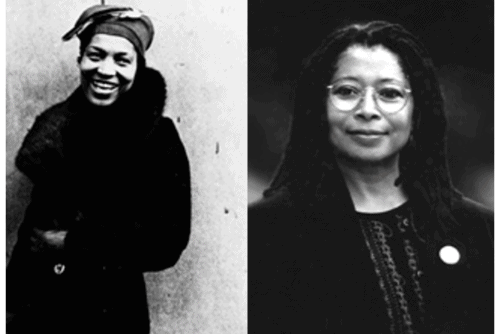Conclusion
In this essay, I have discussed the ways in which the impasses between sexuality-based and “left” movements in the U.S. are constituted. I have argued that, over time, the American left has shifted its positions on sexuality, and particularly its positions on homosexuality, from hostility to tolerance. However, in the current moment, the left has prioritized the politics of representation over the politics of critique with respect to homosexuality, a situation that has resulted in left endorsements of laws and policies that in some way contradict left critiques of the regulatory power that states should have. I have also argued that, whereas the shift in perspectives on sex work has been relatively smaller, the left’s positions on sex work are more aligned with those of abolitionists seeking to criminalize sexual commerce than of scholars and activists who argue that sex work is properly understood within the rubric of labor. My argument has drawn from feminist critiques of left appeals to the liberal state. In their introductory essay to Left Legalism/Left Critique, Brown and Halley outline the terrain for this discussion.
“Traditionally, leftists have focused most of their critical and political attention on the effects of the depoliticized status of political economy in liberal orders. More recently, influenced by a range of poststructural thinkers, many leftists have added the problem of norms and regulation to their analysis. Here, powers of subordination and inequality are no longer seen as simply achieved through the structure of class society, or through the state-society relationship that secures the interests of capital and class dominance, but as located in norms regulating a great variety of social relations, including but not limited to class, gender, sexuality, and race. From this angle, law and the state are seen neither as neutral nor as merely prohibitive, but as importantly productive of identity and subjectivity. Identity, in turn, is conceived as a crucial site of regulation and not simply (as it is for many “liberals”) a basis of equality or emancipation claims or (as it is for many “conservatives”) at best a largely personal or subjective matter irrelevant to justice claims. Whereas liberalism tends to cast identity as arising from a source other than norms, institutions, and social powers, these are the wellsprings and regulatory sites of identity for this strand of left thinking.” 1
The power and role of the state in producing identity and subjectivity is obscured by the historical reliance on sexual normativity evinced by the mainstream left. The left builds its case on stable notions of morality as tied to sexuality, evidenced, for example, in left rhetoric on labor laws designed to protect “working families and communities.” The consequences of this reliance on maintaining the status quo of sexual normativity has led to left institutions either making contradictory appeals to the state, or supporting these appeals on behalf of identity-based groups. An expanded left framework for understanding sexuality would not only counter this trend. It would expand the political and intellectual spaces for discerning power, states, and utopias in ways that remain unimagined. Ultimately, this essay is a call for discerning the meaningful connections between sexuality and political economy in order to reinvigorate the thinking between sexuality and the left.
- Wendy Brown and Janet Halley. Introduction. Left Legalism / Left Critique. Ed. Brown and Halley. Durham and London: Duke University Press, 2002. 1-37: p 7.[↑]



